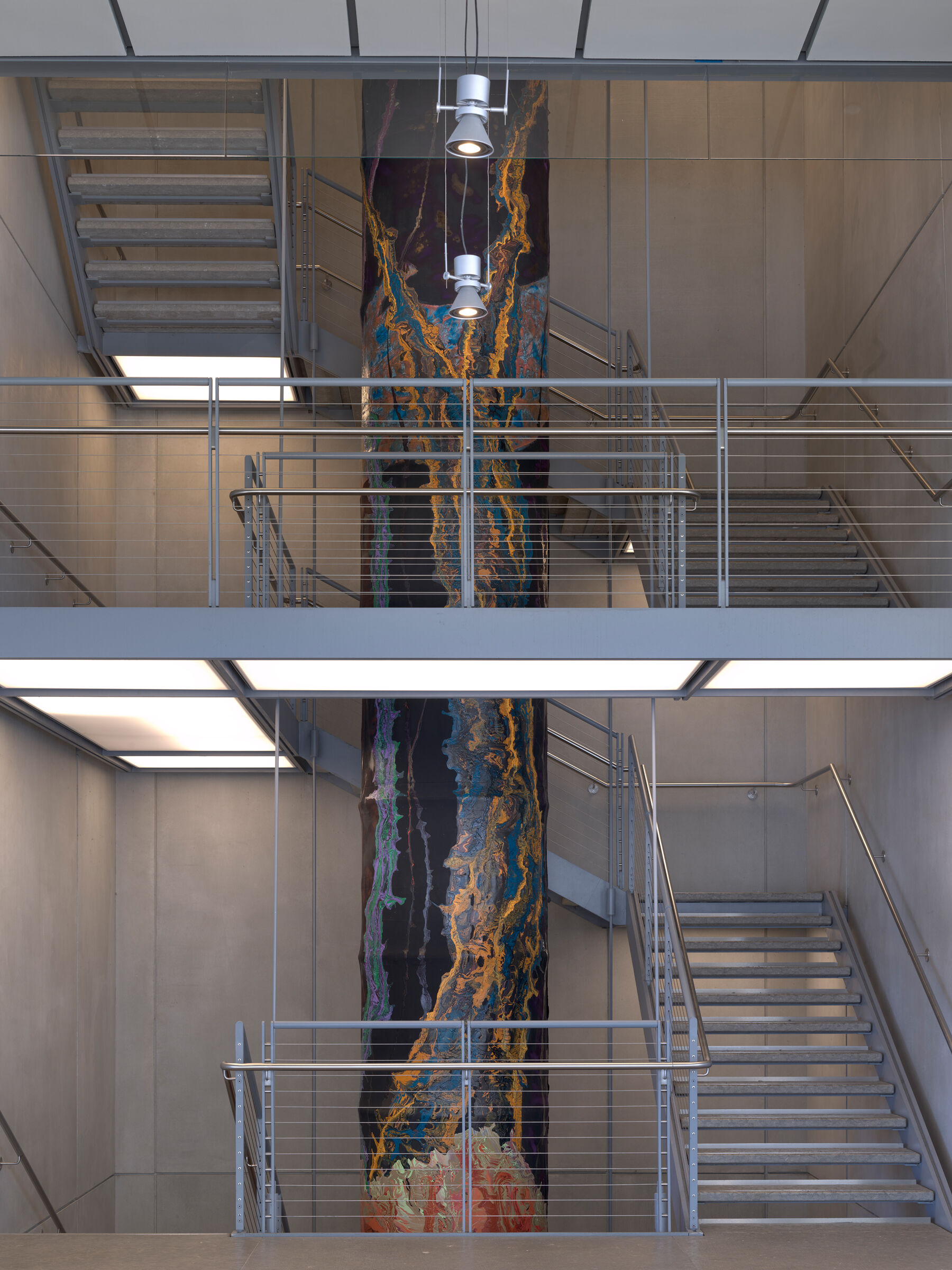Whitney Biennial 2022: Quiet as It’s Kept | Art & Artists
Apr 6–Oct 16, 2022
Whitney Biennial 2022: Quiet as It’s Kept | Art & Artists
Rodney McMillian
39
Stairway
Born 1969 in Columbia, SC
Lives in Los Angeles, CA
Rodney McMillian conceived of this column specifically for the Whitney’s central stairwell. “I don’t think of it as a painting,” he has said, “so much as an object that incorporates painting. It also could be called a portal.” McMillian has further described his work as being heavily engaged with landscape: “I think my interest in it comes from my interest in the political and social realities that I’ve always existed within. The history of South Carolina, the first state to secede, was one of the first histories I encountered and learned as a child. I’ve learned and keep learning about American landscape history, painting history, laws and policies, how people choose to live within and on the land, how people profit from it, its previous uses. All of this has informed why I find it to be such a rich vehicle for conversation.”
shaft, 2021–22
-
0:00
Rodney McMillian, shaft
0:00
Narrator: Rodney McMillian created this piece for the stairwell.
Rodney McMillian: I don’t think of it as a painting so much as I think of it as an object that incorporates painting because it’s about the space. It’s about how the body moves through that space and how the body is engaged with the object, which in my head, I keep wanting to call an event just because it’s the act of ascending and descending. And the idea of like engaging with the work is not about the eyes as much as it’s about the whole bodily experience, because you can’t absorb the whole thing with one’s eyes anyway.
Narrator: McMillan is known for very large-scale landscape paintings made with industrial materials like house paint. Born in South Carolina, McMillan traces his interest in landscape to his political awareness. “I’ve always seen the landscape as a space of oppression because of the toil and the rape and the blood and the murder that’s existed in the land,” he says. “These conditions persist to this day. These are conditions we’ve inherited, and they can be undone. I’m interested in the undoing.”

